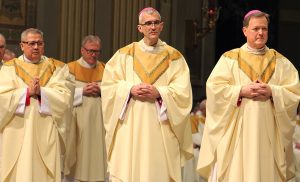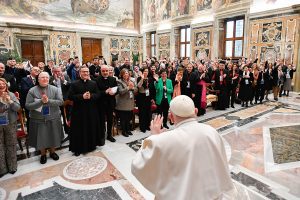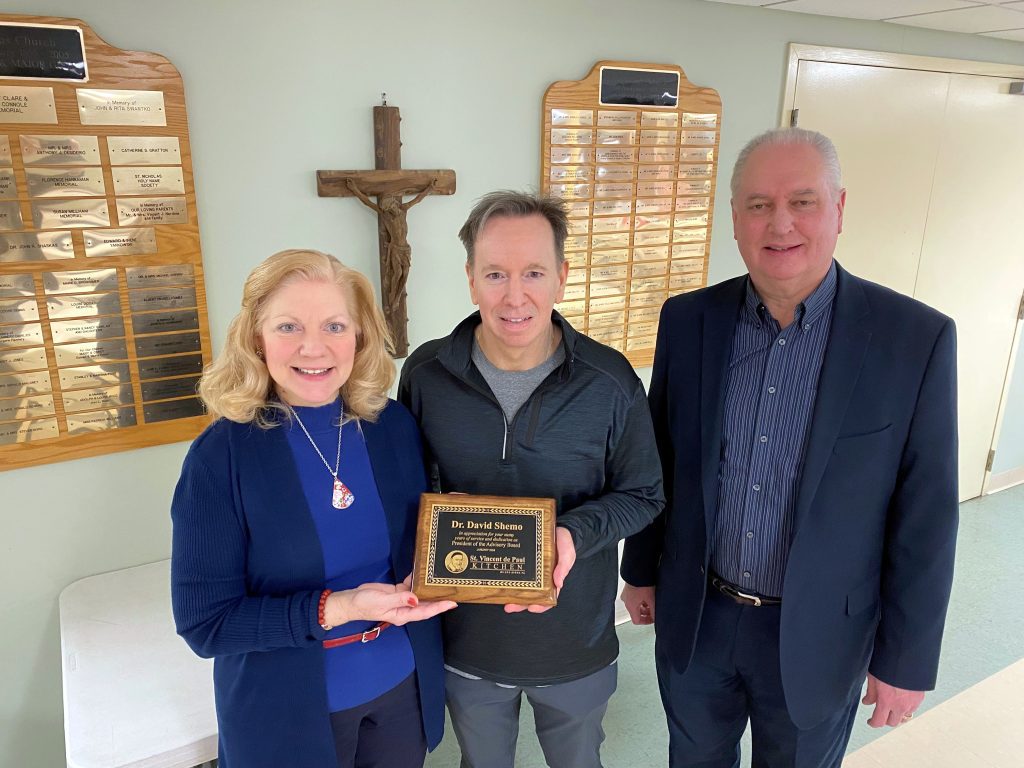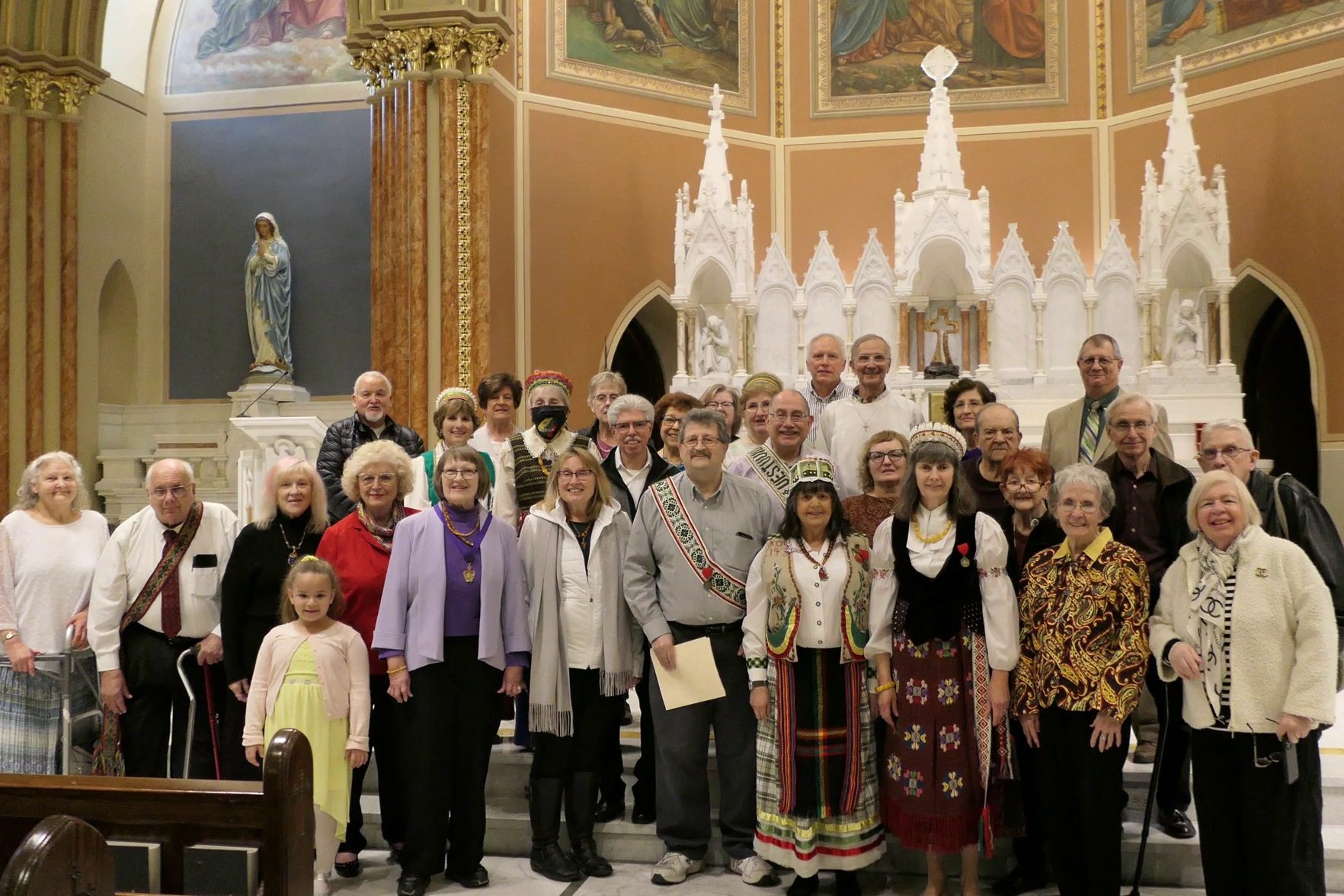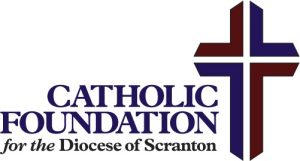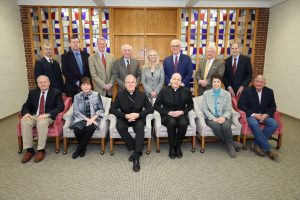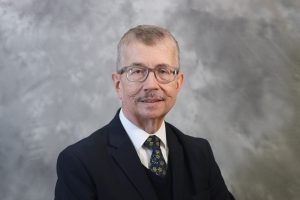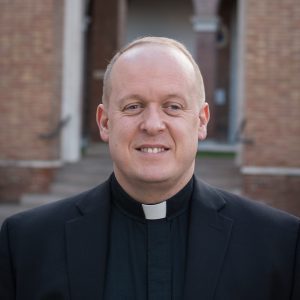(OSV News) – A profound experience with the Eucharist during Mass in his freshman year at Texas A&M University compelled Charlie McCullough to make Jesus the center of his life.
“Every decision that I’ve made after that has been a small step in that relationship and a small response to that invitation,” said McCullough, a 22-year-old north Texas native. “And now the invitation is him saying, ‘Come and follow me,’ as we go on pilgrimage across the United States.”

McCullough is one of 24 young adults who will be journeying with Jesus in the Blessed Sacrament along four National Eucharistic Pilgrimage routes leading to the National Eucharistic Congress. The “perpetual pilgrims” will begin their treks May 17-19 — the weekend of Pentecost — from San Francisco; New Haven, Connecticut; Brownsville, Texas; and the headwaters of the Mississippi River at Lake Itasca in northern Minnesota.
Their routes — a combined 6,500 miles — will converge eight weeks later in Indianapolis for the July 17 opening of the five-day congress in Lucas Oil Stadium. Along the way, the pilgrims will go through small towns, large cities and rural countryside, mostly on foot, with the Eucharist carried in a monstrance designed particularly for this unprecedented event.
“This will be the biggest Eucharistic procession in world history,” said Kai Weiss, a perpetual pilgrim studying theology at the Pontifical Faculty of the Immaculate Conception at the Dominican House of Studies in Washington. “I think Jesus will sanctify this land in an unimaginable way, even invisibly and in an unseen way. But obviously, we will be visible and we will be easily noticed, and I just look forward to what Christ in the Eucharist can bring to other people.”
Weiss, 27, grew up in Regensburg, Germany, where elaborate Corpus Christi processions are commonplace, and people are familiar with Europe’s long history of walking pilgrimages, he said. Last year, he participated in a two-day walking pilgrimage to the Marian shrine of Our Lady of Altötting with about 4,000 people, where pilgrims sang hymns and prayed the rosary along the way.
“That really communal aspect is so beautiful about professions and pilgrimages — that they bring us together as a church, and that since they’re also public, they can also bring in other people,” Weiss said. “It’s a wonderful way of expressing our faith and our joy.”
The National Eucharistic Pilgrimage and National Eucharistic Congress are major parts of the National Eucharistic Revival, a three-year initiative launched in 2022 by the U.S. bishops to inspire a deeper love and reverence for Jesus in the Eucharist. The pilgrimage is modeled on the Gospel account of Jesus’ journey with two disciples to Emmaus after his resurrection.
In October, the National Eucharistic Congress issued a call for perpetual pilgrims and received more than 100 applications. Criteria included being a baptized and practicing Catholic between the ages of 19-29, be in good physical condition and capable of walking long distances, and be committed to upholding church teachings. Backgrounds in ministry, service, leadership and pilgrimage experience were of special interest, according to organizers.
The perpetual pilgrims were chosen after multiple rounds of interviews and follow-up screenings, organizers said in a March 11 media release announcing the pilgrims.
In February, the pilgrims met for a retreat in St. Paul, Minnesota, where they received spiritual formation from Bishop Andrew H. Cozzens of Crookston, Minnesota, who serves as chairman of the National Eucharistic Revival, as well as National Eucharistic Congress staff and priests with pilgrimage and media experience.
Most of the pilgrims are graduate or undergraduate students, and some work for mission-oriented apostolates and nonprofits. “A common thread for all was a profound encounter with Jesus in the Eucharist that they were inspired to share with others,” according to the media statement.
Organized by Modern Catholic Pilgrim, a Minnesota-based nonprofit that promotes U.S. walking pilgrimages and biblical hospitality, the pilgrimage routes include stops at sacred landmarks including saints’ shrines and diocesan cathedrals.
“I am humbled by the commitment demonstrated by those selected to serve as Perpetual Pilgrims this summer,” said Will Peterson, Modern Catholic Pilgrim’s founder and president, in a media statement. “Their excitement at serving as stewards of this unprecedented National Eucharistic Pilgrimage shook the walls at our kickoff retreat. I cannot wait for the rest of the U.S. Catholic Church to walk with our Eucharistic Lord alongside these amazing individuals.”
Each day will include Mass, a small Eucharistic procession and 10-15 miles of travel. Along the way, parishes are planning to host Eucharistic devotions such as adoration, praise and worship, and lectures. Parishes, religious orders, schools, shrines and retreat centers will offer the pilgrims hospitality and offer fellowship and meals.
A support vehicle will accompany the pilgrims and transport them through legs of the journey where “safety, terrain, and/or climate may present obstacles,” according to the media statement.
The pilgrimage routes are named for key saints for North America: the St. Elizabeth Ann Seton Route from the east, the St. Juan Diego Route from the south, the St. Junipero Serra Route from the west, and the Marian Route from the north, which includes a stop in Wisconsin at the Shrine of Our Lady of Champion, the only approved Marian apparition site in the United States.
Weiss is traveling the Marian Route with fellow perpetual pilgrims Sarah Cahill of Virginia; Matthew Heidenreich of Ohio; Danielle Schmitz of California; Jennifer Torres of Colorado; and Megan Zaleski of Illinois.
With McCullough on the Juan Diego route will be Camille Anigbogu of Texas; Shayla Elm of North Dakota; Issy Martin-Dye of Ohio; Joshua Velasquez of Texas; and MacKenzie Warrens of Missouri.
On the Serra route will be Chima Adiole of Texas; Chas Firestone East of Virginia; Patrick Fayad of Nebraska; Jack Krebs of Wisconsin; Madison Michel of Minnesota; and Jaella Mac Au of Georgia.
On the Seton route will be Dominic Carstens of Wyoming; Zoe Dongas of New York; Marina Frattaroli of Texas; Natalie Garza of Texas; Amayrani Higueldo of Pennsylvania; and Christopher Onyiuke of Florida.
Along the way, 30 Franciscan Friars of the Renewal will rotate time on the routes as chaplains. In addition, Father Roger Landry, a chaplain at Columbia University in New York, plans to accompany pilgrims the entire length of the Seton route.
Higueldo, a recent nursing school graduate, told OSV News she is thrilled to be among the perpetual pilgrims. “Through nursing school, I had no time whatsoever,” she said. “My prayer to the Lord was like, ‘Lord, I just want to spend more time with you’ … and lo and behold, here we are a couple months later, and I get to spend two whole months with our Eucharistic Lord, and to go on this crazy adventure, beautiful adventure.”
While she is grateful for what the opportunity will mean for her own life and relationship with Jesus, she is also excited for what it will bring to people they encounter along the way, including those who have questions about the Eucharist or react negatively to the pilgrimage. She is getting ready by reading Scripture, prayer and daily Mass, to “let him (Jesus) work in me and prepare me,” she said. “Because really I don’t know what it’s going to be like until we get there.”
Like her fellow perpetual pilgrims, Higueldo, 26, is also investing in good footwear and increasing the length of her daily walks. She’s noticing the difference it makes in her body.
“My calves are definitely hurting,” she said.
While she expects to carry a light load, she won’t leave behind her journal, she said, “just being able to be a witness to all the graces that the Lord wants to pour out during this pilgrimage and be able to document those and just fall back on those.”
As McCullough thinks about the people the pilgrims will meet along the way, he reflects on the way Jesus encountered people in the Gospels.
“It was always unique and different because he met them where they were at,” said McCullough, a college senior studying mechanical engineering. “I’m just so excited for the look of love from the Eucharist to be extended time and time again to whoever we encounter.”
Weiss said he thinks the National Eucharistic Pilgrimage could be a unifying balm in a polarized country.
“It’s him (Jesus) who brings us all together; he desires and yearns for all of us,” he said.

